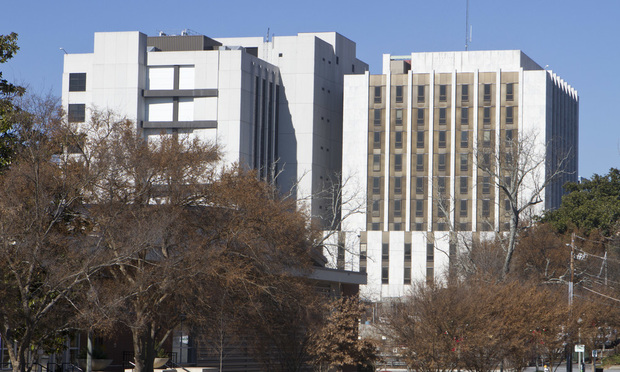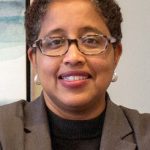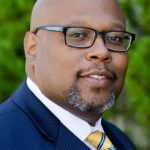Meet the Six Hopefuls Vying for a Slot on DeKalb Superior Court
The race for a seat opening up by the retirement of Superior Court Judge Daniel Coursey has drawn a half-dozen hopefuls wit a wide array of backgrounds and experience.
May 10, 2018 at 03:12 PM
16 minute read

DeKalb County voters have six candidates vying to fill the seat of retiring Superior Court Judge Daniel Coursey.
The Daily Report reached five of them for a question-and-answer session. Following is a short biography of each and their responses, which have been edited for length and clarity.
The election is May 22.

Tunde Akinyele
Age: 51
Law School: Georgia State University College of Law
Website: tundeforjudge.com
Originally from Nigeria, the 51-year-old Akinyele came to the United States 35 years ago and attended the University of South Carolina and Mercer University's Stetson School of Business and Economics before getting a law degree.
After joining the State Bar of Georgia in 2000, Akinyele began working in the DeKalb County Solicitor's Office, then served stint as an assistant Fulton County district attorney before returning to DeKalb as an ADA.
Akinyele launched his own private practice handling criminal and civil litigation in 2013 and serves as an appointed municipal judge in Lithonia and as a hearing officer in Clarkston. He sits as a designated judge in DeKalb County State Court.
According to April disclosure reports, Akinyele raised more than $35,000 in contributions and loaned his campaign $50,000. He said he's since received about another $30,000 in contributions.
Akinyele is single and has no children.
Daily Report: Why do you want to be a superior court judge?
My experience over the past 18 years as a public servant leads me to believe I can do a good job for the people of this community. I was known as a fair prosecutor. I tried a lot of violent crimes, but I could also distinguish when somebody took a wrong turn.
One of my focuses is to prevent kids from falling through the cracks in the system.
As a judge, I've also served on accountability courts. I think I'm one of two DeKalb judges who speaks Spanish. The other one is Judge Dax Lopez, and I sometimes cover his Spanish-speaking DUI court.
DR: What do people say concerns them about the courts when you're out campaigning?
Most people are aware of the accountability courts and diversion programs, and they're interested in expanding. They now know that putting people in mental health courts is more effective than using the penal system.
Folks want their day in court, they want a judge with a good judicial temperament and compassion, but also someone who can make the tough calls.
DR: What would you like readers to remember about you?
You may not know how to pronounce my name, but you'll never doubt my ethics or fairness.

Gina Bernard
Age: 51
Law School: Georgia State University School of Law
Website: gbernard4judge.com
Bernard has been practicing law for 20 years, including the last seven as a prosecutor at the DeKalb County Conflict Defender's Office. She resigned in March to seek a judgeship.
Bernard's voice still retains a hint of the Caribbean lilt of her native Trinidad and Tobago. She came to the United States in 1986, earning business degrees from Florida State University and the University of Southern California.
Bernard also served as a prosecutor in Atlanta Municipal Court and in Fulton County and spent time in private practice handling civil litigation, legitimations, criminal defense and immigration and asylum matters before signing on as a defender in DeKalb.
In her April 4 finance report, Bernard reported $2,948 in contributions and $1,337 in loans.
“I'm still raising some funds,” she said. “Fundraising is tough.”
Bernard is a single mother of two teenage children.
DR: Why do you want to be a superior court judge?
As a conflict defender, we do major felonies: murders, rapes, armed robberies. It's rare to get shoplifting or something like that.
After practicing law for 20 years as a prosecutor and defense lawyer, I got tired of seeing the revolving door and wanted to do more the help people with drug addiction and mental health issues. I want to make a difference in people's lives.
When I see a problem, I want to help. I want to be a part of the solution. I would love to implement a program, using my position as a judge, to go into the schools and educate children about the dangers of crime. A lot of my clients have no clue about the serious consequences of their actions.
DR: What do people say concerns them about the courts when you're out campaigning?
“They're concerned about gangs and crime. They're also concerned about efficient case management, so people will know ahead of time what their court dates are, when things are scheduled. Justice delayed is justice denied.
DR: What would you like readers to remember about you?
That I have been a DeKalb County resident for 25 years, that I am committed to public service and trying to make the county a better place for all of us.

Roderick Bridges
Age: 51
Law school: St. Louis University School of Law
Website: bridgesfordekalb.com
Bridges is originally from Pascagoula, Mississippi, and holds an undergraduate degree in science from Xavier University and a master's in public health and tropical medicine from Tulane University.
He joined the State Bar of Georgia in 1999 and began working at the city of Atlanta Law Department. He moved to the city's Public Defender Office and eventually became a Fulton County public defender.
He was appointed to the DeKalb County Recorder's Court in 2002. Bridges launched a solo practice handling personal injury, criminal and family law matters after that court was abolished in 2015.
Bridges unsuccessfully sought to unseat DeKalb County State Court Judge Dax Lopez in 2016.
Bridges has a daughter serving in the U.S. Navy and a teenage son.
His April 14 financial report indicated that Bridges has loaned his campaign $5,000 and raised another $500.
“We're progressing,” Bridges said. “We got a late start, so I hadn't done much then.”
DR: Why do you want to be a superior court judge?
I've been a public servant my entire life. When this position became available because of Coursey's retirement, I was contacted by a lot of community members and community leaders who urged me to run. I wasn't really planning to do it.
I'm very involved in my community, and I've always wanted to give back, and I think I'm the first candidate to bridge the gap between the community and the judiciary.
I have more than 13 years of judicial experience, and I know how to maintain decorum in a courtroom. I know how to utilize technology effectively to deal with the large volume of cases you see in the superior court, so there's no learning curve. From Day One, I can handle it, whether it's a divorce or criminal matter.
Another advantage is that I worked in health care before I was in the law, so I understand a lot of the mental health issues that are becoming more prevalent in our court system.
DR: What do people say concerns them about the courts when you're out campaigning?
The main thing is that there's more interest in alternatives. We're in a process of judicial reform, and right now we're spending $35,000 a year to keep somebody in prison. There are better ways to spend that money. We have a lot of low-level criminals that need diversion from prison.
Citizens understand that some people need to be in prison, but they also want to see some compassion to make these lower-level offenders come back into the community.
Also, a lot of times, cases have been sitting on the shelf for years, and people are sitting in jail for years. People want cases to move in a timely manner.
The biggest thing is that a lot of people don't have confidence in the judicial system, so maybe judges should spend more time in the community and not just when they're running for election.
DR: What would you like readers to remember about you?
My election will bring a very impartial voice that bridges the gap between the community and the judicial system.

Kirby Clements Jr.
Law School: Emory University School of Law
Campaign website: www.electkirbyjr.com
According to his campaign website, Clements graduated from Emory in 1990 and has served with Atlanta's Solicitor's Office and as a prosecutor with the DeKalb and Fulton County district attorneys' offices.
He has also served with the Brooklyn DA's office in New York.
His website said Clements maintains a practice with his sister at Decatur's Clements Law Group, where he handles consumer rights, criminal defense, personal injury and business litigation.
He has appeared on CNN, MSNBC and other media outlets offering legal analysis. Clements is married with two children.
Clements' April 6 financial report shows he raised $11,003.
DR: Why do you want to be a superior court judge?
After 28 years of practice, I want to restore what I think of as respect for our legal system. Too often, prosecutor and defense lawyers seem to argue more for the judge rather than the law. I want to get back to where it doesn't matter whether the judge likes you.
When I was a prosecutor, I'd hear lawyers say, “I know this judge, I know what he's going to do.” It's like a smart lawyer goes with the winning judge.
If people feel that the law doesn't respect them, they won't respect the law. And I don't think people respect the law.
I've also had plenty of civil experience. I'm the trial lawyer in my office. I've handled contract disputes, family law matters, temporary restraining orders, family law, appellate law—there's not much I haven't done, even probate litigation.
DR: What do people say concerns them about the courts when you're out campaigning?
It goes back to what I was just talking about: A lot of people in the community have said they're concerned about the process, and therefore they lack confidence in the results. I was at a recent meeting with several professionals, and they said “we question the outcomes because we question the fairness of the process.”
There has to be integrity in the process regardless of race, money or influence.
DR: What would you like readers to remember about you?
I am a person who enjoys the law: I enjoy the debate, I enjoy the truth-finding process. As a patient person, I'm willing to listen to your arguments, and I'm very concerned about reason prevailing.

LaTisha Dear-Jackson
Age: 41
Law School: Georgia State University College of Law
Website: latishaforjudge.com
Dear-Jackson came to Atlanta from Los Angeles to attend Spelman College and “fell in love with Atlanta.”
Currently a senior associate at Sampson & Tompkins, Dear-Jackson was previously a full-time judge in the DeKalb County Recorder's Court until it was abolished. She has served as the chief municipal court judge for the city of Lithonia and is currently a municipal judge in the cities of Stone Mountain and East Point and has sat by designation in the DeKalb County State and Superior Courts.
After joining the bar in 2001, Dear-Jackson spent two years as an assistant DeKalb County solicitor before going into private practice, where she represented criminal and civil litigants and handled family law and juvenile law cases.
According to her April 6 finance report, Dear-Jackson raised $34,950 in contributions and made a $100 loan.
“We're well beyond that $35,000 now,” she said.
Dear-Jackson is married with no children.
DR: Why do you want to be a superior court judge?
“I want to make a difference, and I want to impact the justice system. For me, that means bringing more modernization to the court. As a civil litigator who handles cases throughout the state, you want to be able to get on the phone and schedule hearings, make trial dates. I want to make more use of case-management orders for complex criminal cases. By that, I mean multicount, multiple defendant cases and also for noncriminal cases.
That will streamline the system and make the court move more efficiently.
I also want to address domestic cases. A superior court judge handles about 1,000 cases a year, and about 40 percent are domestic in nature. As a family law attorney and former guardian ad litem, I want to create more time for those cases.
In Stone Mountain Municipal Court, I worked with prosecutors to start a low-level offender court for people accused of public intoxication, disorderly conduct, marijuana possession, fighting and for driving offenses for people 25 and younger.
I want to apply those same principles for first-time, low-level offenders in superior court.
DR: What do people say concerns them about the courts when you're out campaigning?
Two things. First, they want their day in court, and they want to be heard. A lot of times we get pro se litigants, and they they don't know the rules, but they want to get it off their chests and say what happened to them.
That's the same thing I'm hearing on the campaign trail. People are not given an opportunity to get information to the court, especially in family court.
Second, the community is very concerned about juveniles and issues like breaking into cars and with people using these juveniles to commit crimes. The next question is, “What can we do to help?” We need to educate these young people, go into high schools and explain these are felonies, these are the consequences. Would you want this happening to your mother or father or even you?
DR: What would you like readers to remember about you?
“I would want then to know I'm committed to fair justice and providing the court with a level of experience they can trust, based on what I've been doing for almost 20 years.

Nicholas Smith
Age: 41
Law School: Georgia State University College of Law
Website: http://www.nicholasforjudge.com/
Buckley Beal partner Nicholas Smith is a DeKalb County native who earned an undergrad degree in mathematics from the University of Georgia and spent a few years working as a junior executive at a West Coast department store before returning to work at his family's residential construction business.
He eventually decided to go into law and graduated from GSU in 2005.
He did a stint at civil business litigation firm Drew Eckl & Farnham, then landed a clerkship at the U.S. Court of Appeals for the Eleventh Circuit. When that opportunity timed out, he returned to Drew Eckl, where he handled product liability defense work.
He and a friend launched a private practice, and he began working with Andrew Beal. When Beal and Edward Buckley launched Buckley Beal in 2015, they asked Smith to come along.
Smith's April 2 financial report indicates he had raised $9,695 in contributions and loaned his campaign another $5,000.
“We've raised about another $4,000,” he added.
Smith is married with no children.
DR: Why do you want to be a superior court judge?
Before I became a lawyer, I worked in business. I wanted to go to law school to help folks navigate the legal issues they encounter.
I see DeKalb County going in the wrong direction and want to fix that. We need to be growing as a county and attracting businesses, and to do that we need a stable, reliable court system where citizens and businesses can have their cases heard fairly and efficiently.
I think there's a lack of organization. The courts are operating like they've been operating for 25 or 30 years. The judges are not being innovative in the way they tackle their dockets. They're not issuing scheduling orders, they're not communicating with the parties.
Judges in other circuits have standing orders and scheduling orders in place and use technology as simple as conference calls for scheduling. They're allowing conference calling in hearings, for example, and that's the direction I think the court needs to start moving in.
DR: What do people say concerns them about the courts when you're out campaigning?
That's a good question, because a lot of people haven't dealt with the courts, and they think things are fine. I think people who do want to see a different approach and not just technologically but a different way to handle crime and a different way to sentence folks.
DR: What would you like readers to remember about you?
“The definition of insanity is doing the same thing over and over again and expecting a different result. We have got to do something different, and I am the candidate who is a proponent for change and innovation.
This content has been archived. It is available through our partners, LexisNexis® and Bloomberg Law.
To view this content, please continue to their sites.
Not a Lexis Subscriber?
Subscribe Now
Not a Bloomberg Law Subscriber?
Subscribe Now
NOT FOR REPRINT
© 2025 ALM Global, LLC, All Rights Reserved. Request academic re-use from www.copyright.com. All other uses, submit a request to [email protected]. For more information visit Asset & Logo Licensing.
You Might Like
View All

Trending Stories
- 1Uber Files RICO Suit Against Plaintiff-Side Firms Alleging Fraudulent Injury Claims
- 2The Law Firm Disrupted: Scrutinizing the Elephant More Than the Mouse
- 3Inherent Diminished Value Damages Unavailable to 3rd-Party Claimants, Court Says
- 4Pa. Defense Firm Sued by Client Over Ex-Eagles Player's $43.5M Med Mal Win
- 5Losses Mount at Morris Manning, but Departing Ex-Chair Stays Bullish About His Old Firm's Future
Who Got The Work
J. Brugh Lower of Gibbons has entered an appearance for industrial equipment supplier Devco Corporation in a pending trademark infringement lawsuit. The suit, accusing the defendant of selling knock-off Graco products, was filed Dec. 18 in New Jersey District Court by Rivkin Radler on behalf of Graco Inc. and Graco Minnesota. The case, assigned to U.S. District Judge Zahid N. Quraishi, is 3:24-cv-11294, Graco Inc. et al v. Devco Corporation.
Who Got The Work
Rebecca Maller-Stein and Kent A. Yalowitz of Arnold & Porter Kaye Scholer have entered their appearances for Hanaco Venture Capital and its executives, Lior Prosor and David Frankel, in a pending securities lawsuit. The action, filed on Dec. 24 in New York Southern District Court by Zell, Aron & Co. on behalf of Goldeneye Advisors, accuses the defendants of negligently and fraudulently managing the plaintiff's $1 million investment. The case, assigned to U.S. District Judge Vernon S. Broderick, is 1:24-cv-09918, Goldeneye Advisors, LLC v. Hanaco Venture Capital, Ltd. et al.
Who Got The Work
Attorneys from A&O Shearman has stepped in as defense counsel for Toronto-Dominion Bank and other defendants in a pending securities class action. The suit, filed Dec. 11 in New York Southern District Court by Bleichmar Fonti & Auld, accuses the defendants of concealing the bank's 'pervasive' deficiencies in regards to its compliance with the Bank Secrecy Act and the quality of its anti-money laundering controls. The case, assigned to U.S. District Judge Arun Subramanian, is 1:24-cv-09445, Gonzalez v. The Toronto-Dominion Bank et al.
Who Got The Work
Crown Castle International, a Pennsylvania company providing shared communications infrastructure, has turned to Luke D. Wolf of Gordon Rees Scully Mansukhani to fend off a pending breach-of-contract lawsuit. The court action, filed Nov. 25 in Michigan Eastern District Court by Hooper Hathaway PC on behalf of The Town Residences LLC, accuses Crown Castle of failing to transfer approximately $30,000 in utility payments from T-Mobile in breach of a roof-top lease and assignment agreement. The case, assigned to U.S. District Judge Susan K. Declercq, is 2:24-cv-13131, The Town Residences LLC v. T-Mobile US, Inc. et al.
Who Got The Work
Wilfred P. Coronato and Daniel M. Schwartz of McCarter & English have stepped in as defense counsel to Electrolux Home Products Inc. in a pending product liability lawsuit. The court action, filed Nov. 26 in New York Eastern District Court by Poulos Lopiccolo PC and Nagel Rice LLP on behalf of David Stern, alleges that the defendant's refrigerators’ drawers and shelving repeatedly break and fall apart within months after purchase. The case, assigned to U.S. District Judge Joan M. Azrack, is 2:24-cv-08204, Stern v. Electrolux Home Products, Inc.
Featured Firms
Law Offices of Gary Martin Hays & Associates, P.C.
(470) 294-1674
Law Offices of Mark E. Salomone
(857) 444-6468
Smith & Hassler
(713) 739-1250








